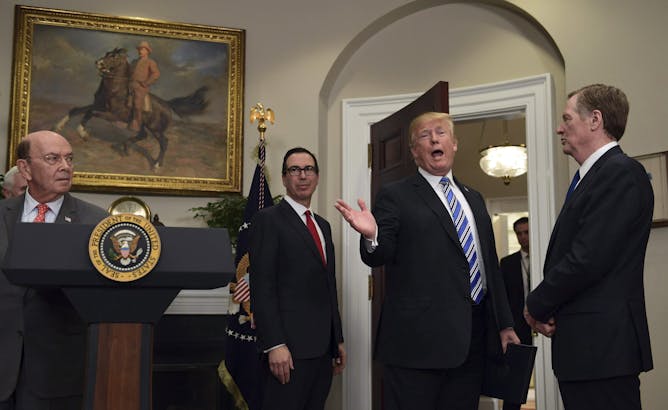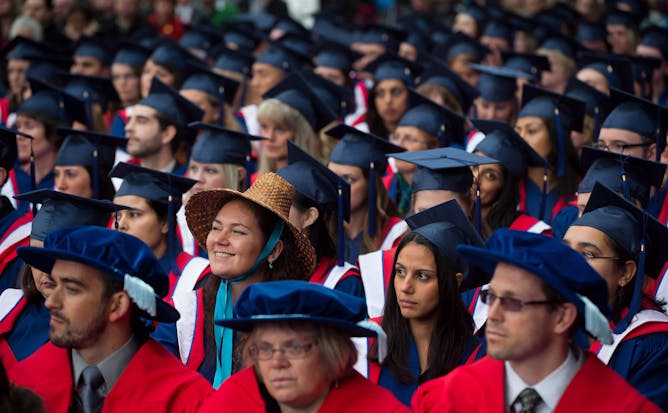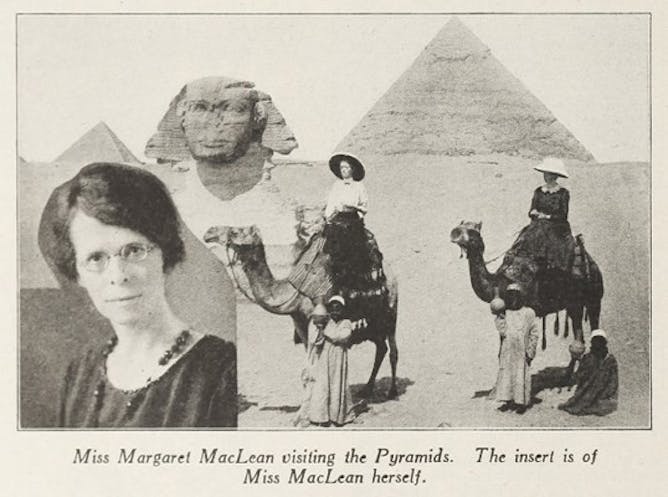|
Donald Trump cited national security concerns when he announced Thursday the United States was imposing steel and aluminum tariffs on Canada, Mexico and the European Union. Today in The Conversation Canada, Hugh Stephens of the University of Calgary looks at Trump’s other promise to bring in tough tariffs on foreign-made autos. His conclusion: it’s time for Canada to call Trump’s bluff.
One of the many disturbing developments in our society is the increase in the number of parents who have made the conscious decision to not have their children receive vaccinations. What can be done to convince them? Catherine Carstairs of University of Guelph and Bethany Philpott of Queen’s University look at a campaign to end diphtheria in the 1930s and suggest something similar could work now.
It’s convocation season at all Canadian universities. But who’s not there? Veldon Coburn – a PhD candidate at Queen’s University’s, lecturer at McGill University and an Anishinaabe from the Pikwàkanagàn First Nation – explores why there aren’t more Indigenous people among the graduating classes.
And finally…you know the name Lucy Maud Montgomery. But what about Belinda Bluegrass? It’s the same person! Carole Gerson of Simon Fraser University writes about a new database that contains the names of thousands of women authors in Canada whose first publication appeared in the first half of the 20th century.
Regards,.
|

President Donald Trump makes a comment at the White House in March 2018, when he signed proclamations on steel and aluminum imports. Watching as Trump leaves are, from left, Commerce Secretary Wilbur Ross, Treasury Secretary Steven Mnuchin and U.S. Trade Representative Robert Lighthizer.
(AP Photo/Susan Walsh)
Hugh Stephens, University of Calgary
Donald Trump's 'Art of the Deal' may be all about talking tough, bluffing and bullying, but as any poker player knows, there comes a time to call a bluff. If there ever was such a time, this is it.
|

A vaccine (toxoid) against diphtheria first became available in Toronto in 1926. Thanks to the work of the Toronto Diphtheria Committee, the city was diphtheria-free by 1940.
(Shutterstock)
Catherine Carstairs, University of Guelph; Bethany Philpott, Queen's University, Ontario; Caitlin Fendley, Purdue University
Toronto's fight against diptheria teaches us the powerful impact of public health campaigns -- in persuading parents to vaccinate their children.
|

A Simon Fraser University student wears a First Nations Coast Salish woven cedar hat as she and other students wait to receive their degrees during the fall convocation ceremony at the university in Burnaby, B.C., on October 11, 2013.
THE CANADIAN PRESS/Darryl Dyck
Veldon Coburn, McGill University
Wilful under-funding of Indigenous education is producing an Indigenous underclass.
|

Margaret MacLean visited and wrote about the Royal Ontario museum’s collections as well as visiting Egypt for Saturday Night magazine.
(Database of Canadian Women Writers)
Carole Gerson, Simon Fraser University
Did you know Lucy Maud Montgomery also published under the name Belinda Bluegrass? A new database of early Canadian women writers reveals thousands of stories about women's lives in Canada.
|
Health + Medicine
|
-
Catherine O. Egbe, PhD, South African Medical Research Council
South Africa's proposed new tobacco laws will tighten the grip on how cigarettes and other tobacco products are sold, marketed and regulated in the country.
|
|
Politics
|
-
Adam Swain, University of Nottingham
A stunning feat of security service showmanship speaks volumes about Ukraine's abject state of decay.
|
|
Science + Technology
|
-
Alice Clement, Flinders University; John Long, Flinders University
A 400 million year old fossilised fish skull gives us very early and previously unknown clues about how boney fishes evolved into the vertebrates we see today on Earth - including us humans.
|
|